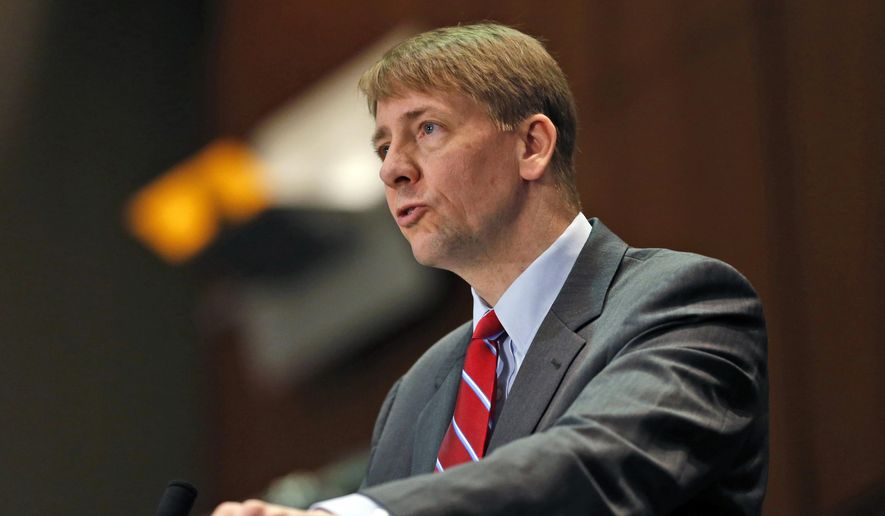The Justice Department told a federal appeals court Friday that President Trump must have the authority to fire the head of the Consumer Financial Protection Bureau, a powerful regulatory agency created under President Obama.
In an unusual move, the Justice Department filed a friend-of-the court brief opposing the CFPB in a major court case, asserting that the agency’s organizational structure is unconstitutional. It’s the same conclusion that a panel of appellate judges reached last year.
In the court case, begun during the Obama administration, the CFPB is seeking to preserve its current structure, in which Director Richard Cordray is protected from being fired by the president. The Trump Justice Department told the U.S. Court of Appeals for the District of Columbia that the president should be able to fire the director at will.
“Because a single agency head is unchecked by the constraints of group decision-making among members appointed by different presidents, there is a greater risk that an ’independent’ agency headed by a single person will engage in extreme departures from the president’s executive policy,” Justice officials told the court. “Limitations on the president’s authority to remove a single agency head are a recent development to which the executive branch has consistently objected.”
Republicans in Congress have criticized the CFPB as a regulator run amok with no accountability. Mr. Trump’s advisers haven’t said what, if anything, he intends to do with the agency.
The Justice Department sided with PHH Corp., a mortgage lender, against the CFPB’s enforcement action against the company. But the Justice Department stopped short in its brief of asking the court for the bureau to be abolished.
Congress created the CFPB as part of the Dodd-Frank financial regulatory law in 2010, with the vocal backing of Democrats such as Mr. Obama and Sen. Elizabeth Warren of Massachusetts.
The agency aims to regulate the consumer-finance industry, including credit card companies, loan agencies, and other financial products and services. It has the power to investigate companies, take enforcement actions and impose civil fines.
PHH challenged a $109 million fine imposed by the CFPB for alleged violations of a real-estate law. A three-judge panel of the D.C. Circuit ruled last year that the CFPB’s organizational structure, with a single head instead of a commission, was unconstitutional.
• Andrea Noble contributed to this report.
• Dave Boyer can be reached at dboyer@washingtontimes.com.




Please read our comment policy before commenting.